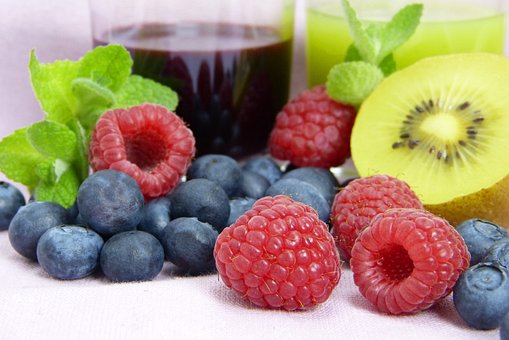Healthy Fats: The Essential Nutrients Your Body Needs for Optimal Health
In recent years, fats have been the subject of confusion, but it’s important to understand that not all fats are created equal. Healthy fats are crucial for our overall well-being and provide essential benefits such as supporting brain function, promoting heart health, and helping your body absorb vital nutrients. Here, we’ll explore the best sources of healthy fats and how they can enhance your diet while promoting a balanced lifestyle.
➡ What Are Healthy Fats?
Healthy fats, also known as unsaturated fats, include monounsaturated and polyunsaturated fats. These types of fats can help reduce bad cholesterol levels and provide a range of health benefits when consumed in moderation. In contrast, trans fats and saturated fats (found in processed foods and fatty cuts of meat) can raise cholesterol levels and increase the risk of heart disease.
➡ Why Are Healthy Fats Important?
Support Brain Function: Omega-3 fatty acids, a type of polyunsaturated fat found in foods like fish, flaxseeds, and walnuts, are vital for brain health, improving cognitive function and protecting against mental decline.
Promote Heart Health: Healthy fats can help lower bad cholesterol (LDL) and raise good cholesterol (HDL), reducing the risk of heart disease. Olive oil, avocado, and fatty fish are great heart-healthy fat sources.
Absorption of Vitamins: Healthy fats help your body absorb fat-soluble vitamins like vitamins A, D, E, and K. These vitamins are necessary for various body functions, including immune support and bone health.
Help Maintain Healthy Skin and Hair: Omega-3 fatty acids contribute to healthy skin and hair by helping maintain moisture and elasticity.
➡ Top Sources of Healthy Fats
1. Avocados
Avocados are loaded with heart-healthy monounsaturated fats, fiber, and important vitamins. Their creamy texture makes them a versatile ingredient, ideal for salads, sandwiches, or even smoothies.
How to Use It: Add sliced avocado to toast, blend into guacamole, or toss into salads.
2. Olive Oil
Olive oil is a rich source of monounsaturated fats and antioxidants, especially extra virgin olive oil, which is minimally processed. It’s one of the healthiest fats you can use for cooking or drizzling over dishes.
How to Use It: Use olive oil in dressings, as a cooking oil for sautéing, or drizzle over roasted vegetables and pasta.
3. Nuts and Seeds
Nuts (such as almonds, walnuts, and cashews) and seeds (like chia, flax, and sunflower seeds) are excellent sources of monounsaturated and polyunsaturated fats, including omega-3 fatty acids. They are also packed with fiber, protein, and antioxidants.
How to Use It: Snack on a handful of mixed nuts, add them to oatmeal or yogurt, or sprinkle chia or flax seeds on smoothies or salads.
4. Fatty Fish
Salmon, mackerel, sardines, and other fatty fish are excellent sources of omega-3 fatty acids, which are particularly beneficial for heart health and reducing inflammation.
How to Use It: Grill, bake, or pan-sear fatty fish for a flavorful, heart-healthy meal. Add it to salads or sandwiches for an extra dose of omega-3s.
5. Coconut Oil
Coconut oil is rich in medium-chain triglycerides (MCTs), a type of fat that may be easily absorbed by the body for energy. While it’s higher in saturated fat than some other oils, it can be part of a healthy diet when used in moderation.
How to Use It: Use coconut oil for baking, sautéing, or adding to smoothies for a tropical flavor.
6. Chia Seeds
Chia seeds are an excellent source of omega-3 fatty acids, fiber, and protein. They help support heart health, digestion, and skin hydration.
How to Use It: Make chia pudding by mixing them with almond milk, yogurt, or coconut milk. You can also sprinkle them on salads, smoothies, or baked goods.
7. Nut Butters
Nut butters like almond butter, peanut butter, and cashew butter are rich in healthy fats and protein. Look for options without added sugar or unhealthy oils.
How to Use It: Spread on whole grain toast, stir into smoothies, or use as a dip for fruits like apple slices.
8. Flaxseeds
Flaxseeds are packed with omega-3 fatty acids, fiber, and lignans, which are antioxidants that support heart health.
How to Use It: Sprinkle ground flaxseeds into smoothies, oatmeal, or baked goods like muffins and pancakes.
9. Dark Chocolate
Dark chocolate (with at least 70% cocoa) contains healthy fats, along with antioxidants and magnesium, making it a delicious yet beneficial treat in moderation.
How to Use It: Enjoy a small piece of dark chocolate as a dessert or snack, or melt it into a healthy hot chocolate recipe.
10. Full-Fat Dairy
If you tolerate dairy, full-fat versions of yogurt, cheese, and milk provide beneficial fats along with calcium and probiotics for gut health. Just be mindful of portion sizes.
How to Use It: Use full-fat yogurt as a base for smoothies, enjoy cheese with whole grain crackers, or incorporate into baked dishes like casseroles.
➡ How to Incorporate Healthy Fats Into Your Diet
Including healthy fats in your diet doesn't require drastic changes. Here are some simple ways to incorporate them into your meals:
Swap Cooking Oils: Use olive oil or avocado oil in place of vegetable oil when sautéing or roasting vegetables.
Snack on Nuts: Keep a handful of mixed nuts or seeds on hand for a quick, satisfying snack.
Add Avocado: Top salads, toast, and sandwiches with creamy avocado slices.
Choose Fatty Fish: Include fatty fish like salmon or mackerel in your weekly dinner rotation.
Use Nut Butters: Spread almond or peanut butter on fruit or toast for a satisfying snack.
➡ Final Thoughts on Healthy Fats
Healthy fats are a crucial part of a balanced diet, and they offer a wide array of health benefits, from boosting brain function to promoting heart health. By including these nourishing fats in your meals, you can create a well-rounded and satisfying diet that supports your long-term well-being. Always remember to consume fats in moderation, as they are calorie-dense, and focus on incorporating a variety of fat sources to get the full range of nutrients your body needs.
So go ahead, enjoy your healthy fats in delicious ways, and embrace a diet that nourishes and supports your body’s needs!
















